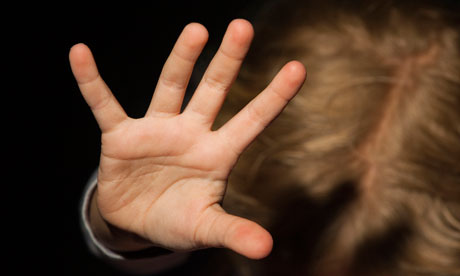
Attachment disorder: The families struggling to stay in control
Families of violent and disruptive children with attachment disorder are finding that support for the condition is in short supply
Parents Against Injustice
Families of violent and disruptive children with attachment disorder are finding that support for the condition is in short supply


On a good day, Amy Robson's 14-year-old stepson James is just like any other teenage boy – he'll happily regale you with the latest footie scores or challenge you to a game on the PlayStation at his home in Cumbria. But on a bad day, the same teenager has been known to threaten classmates, attack teachers and even defecate in the classroom.
Two years ago James was diagnosed with attachment disorder, something that occurs when the attachment between a child and a care-giver is not formed during early childhood.
It was brought on by his chaotic start in life, when he lived in a violent household with an alcoholic mother. James was eight by the time his father was granted custody of him. Subsequently, James displayed worrying behaviour including refusing to change his underwear for several weeks and threatening to kill himself.
"We hit a crisis point [last year] as we just weren't getting any help," Robson says. "Finding treatment and support was difficult. Just getting a diagnosis was a huge task. Eventually a Camhs [child and adolescent mental health services] worker diagnosed him with attachment disorder but after a long journey with the social worker, funding was cut and that was the end of that. No more help."
Help could soon be at hand, following the award of a government grant to a group of child psychiatrists from Hull York Medical School to carry out a systematic review to determine which interventions are most effective among parents of children with attachment problems. Barry Wright, consultant child psychiatrist and honorary senior lecturer at Hull York Medical School, is leading the review, which will publish its findings in 2014. He says swift diagnosis and early intervention are vital: "Like a lot of these things, the more support you can put in early, the more dividends that pays. "
Studies have shown that children displaying attachment problems in .... "A lot of young people we see who do commit crime on a regular basis often come from troubled backgrounds and often you can see quite clearly there are attachment problems going on there," says Wright.
Hayley Morgan is concerned that her 13-year-old adopted son Jon will go to prison. Jon has been expelled from two schools and involved with the police several times after physically attacking Morgan and her husband. Last year social workers placed him in a care home, for the safety of himself and his family.
"Jon has got worse since he's been in care. He's learning things that perhaps he wouldn't have learnt if he hadn't been there," says Morgan. "I am worried he will end up inside. It's like living with two kids because sometimes he's the nicest boy. But he's on his last warning with the police. He wants help, but where do we go for help?"
When Morgan, from Bristol, adopted Jon and 14-year-old Steve 10 years ago, she says she was given a parenting course in preparation for adoption, but the issue of attachment was never brought up.
"When he was just four, Jon used to do some very strange things, like saying he wanted to kill himself and throwing himself off the top of the stairs. Jon is very happy-go-lucky, he's very chatty and active. But his behaviour got a lot worse over the years," she says. "At one time he pulled a knife on his brother. He would see the red mist but then he would break down and cry and say, 'Mum, I don't know what to do about this anger.'"
In December, Morgan was finally offered a council-funded course to learn about attachment issues. But she says it failed to teach her strategies to cope. She was sent on a self-defence course to deal with the violent behaviour, but Jon won't be allowed home until social workers believe he won't be a danger to himself and others.
Despite cuts to many Camhs services, the government insists that the mental health and psychological wellbeing of children is high on its agenda. In October, care services minister Paul Burstow announced a £32m investment in psychological therapies for children and young people with mental health problems, including attachment disorder.
Burstow said: "We're breaking new ground with this investment in children's mental health. We're working with young people and staff to start to change the way mental health is delivered by the NHS. Half of those with mental health problems first experience symptoms by the age of 14, and three-quarters before their mid-20s. This pioneering work will focus on early and effective treatment."
But Morgan says: "When I was talking to people at the children's home where Jon is, they said: 'We're getting them too late.'"
Robson adds: "We are petrified about the future. If we could wish for something it would be for some really good therapy that would melt away his [James's] anger. We hold out so much hope – on a good day he can be a great kid to be around."
© 2025 Created by Alison J Stevens.
Powered by
![]()
You need to be a member of Parents Against Injustice to add comments!
Join Parents Against Injustice